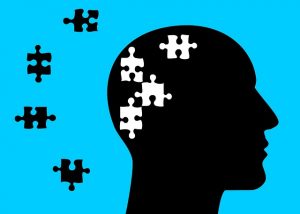October 24th, 2019
Health & Wellbeing

An eagerly awaited health study regarding the safety of fracking has been released. The study, conducted by consulting firm ICF International, found that oil a gas drilling caused health risks at distances greater than the currently established “setback” distance of 500 feet from single family homes and 11oo feet from high occupancy buildings. The study […]
Read More
May 4th, 2019
Cannabis

Cannabis consumers are typically portrayed as lazy, and have had the couch locked stigma association in mainstream media over the years. With new research from the University of Colorado Boulder released, the topic about cannabis and fitness is going mainstream. The stigma about cannabis consumers being lazy is being shattered by science. Men’sHealth, Maxim, The […]
Read More
November 24th, 2018
Cannabis

Could you use some extra cash for the holidays? Are you active and consume cannabis? How about just active? If you answered yes to any of these questions, then you might qualify to participate in ongoing cannabis research right here in Colorado! There are several research studies being conducted throughout the state, and you can […]
Read More
November 1st, 2018
Health & Wellbeing

A 2015 survey found that two out of three U.S. teens owned an iPhone. For this reason, the generation of kids born after 1995 is called iGen, coined by author Jean Twenge, author of a book on the subject. According to the Pew Research Center, smart phone ownership crossed the 50 percent threshold in late […]
Read More
October 25th, 2018
Health & Wellbeing

Rosacea is a skin condition characterized by redness and often small, red, pus-filled bumps on the face. Over 3 million people are estimated to have rosacea and the signs and symptoms may flare up for a period of weeks to months and then diminish for a while. Rosacea can be mistaken for acne, an allergic […]
Read More
October 11th, 2018
Health & Wellbeing

From birth to death, one of the most important parts of being human is the need for physical contact. Did you know that a firm hug can make you feel less negative emotion? Scientists found that getting a hug on the day of a conflict was linked to a slight rise in positive emotions and […]
Read More
October 4th, 2018
Health & Wellbeing

In 2018, an estimated 1.7 million new cases of cancer will be diagnosed in the United States and over 600 thousand people will die from the disease. Recently, a phase I trial was conducted testing a personalized vaccine’s ability to hold an aggressive group of cancers in check. The trial is the first step to […]
Read More
September 10th, 2018
Health & Wellbeing

Are you putting off until tomorrow what you could be doing today? If that’s you, it might not be just a personality trait. A study of over 250 men’s and women’s brain scans revealed that a brain region involved in motivation tends to be larger among people who put things off, while communication between that […]
Read More
July 19th, 2018
Health & Wellbeing

Brain injury has been a hot topic of conversation since Dr. Bennet Omalu, a forensic pathologist, conducted the autopsy of Pittsburgh Steelers center Mike Webster in 2002. The autopsy led to his discovery of a new disease that he named chronic traumatic encephalopathy, or CTE. CTE is the term used to describe brain degeneration likely […]
Read More
















